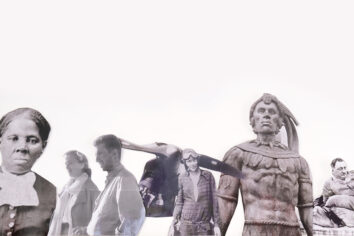New students starting in September: You can find more information about Induction days and submitting your GCSE results in our Start of Year Guide.
WHY CHOOSE THIS COURSE?
In Modern History, you will study the rise and fall of the British Empire 1857 – 1967. This provides an interesting contrast to the second module – the Cold War, 1945 – 1991. The third module is a Non-Examined Assessment on the USA 1763 – 1865, focussing on the period when the USA won its freedom from Britain then descended into Civil War. Whilst studying these modules, you will develop transferrable skills that will carry through to university and employment, particularly research, planning, and evaluation. History also complements many other A Level subjects such as Politics, Classical Civilisation, English Literature, Geography, Law and Economics.
Apply for this course
Start date: 08/09/2025
TOP COURSE HIGHLIGHTS
Develop transferrable skills
enrichment opportunities
Small class sizes
passionate lecturers
20% Coursework

Knowledgeable and enthusiastic staff
The History Department is friendly, supportive, experienced, ambitious and hardworking. Achievement in this subject relies heavily on your attendance, punctuality and commitment to learning, both independently and within lectures.

transferrable skills
Modern History is a highly respected subject by universities and employers due to the transferrable skills gained on the A Level course, including research, planning, analysis, evaluation and essay writing. It also complements other subjects such as Politics, Sociology, Philosophy, English Literature, Geography, Law and Economics.

20% coursework - historial investigation
This suits students who don’t always do themselves justice in exams, due to timing issues or stress. The NEA also gives students the opportunity to research an area of interest from the USA 1763-1865, such as the impact of slavery, westward expansion and the Presidency or the causes of the American Civil War.
WHAT WILL I LEARN?
During the two years of A Level you will study the British Empire between 1857 and 1967 and The Cold War 1945-1991. We will be considering key questions such as how Britain came to assume such a vast Empire upon which the sun never set and why, having amassed such an immense Empire, Britain relinquished much of it in a 20 year period after the end of World War Two. You will study the key events in the expansion of the British Empire, the significance of individuals such as Cecil Rhodes and the impact of World War One and World War Two in the process of decolonisation.
The rise and fall of the British Empire provides an interesting contrast to the other examined module – The Cold War, 1945-1991. You will look at the origins of the ideological conflict between the United States and Soviet Union and the impact that key individuals such as Truman and Stalin had on the emerging conflict. You will examine how the Cold War developed in the 1950s and 1960s and consider the impact the escalating arms race had, as well as the increasingly global nature of the conflict. You will study the reasons for the improvement in relations during the period of détente and the reason for its collapse and subsequent deterioration of relations into the ‘New Cold War’ in the early 1980s. You will conclude your study with an examination of the fascinating period 1985-1991 which saw the end of the Cold War and the collapse of the Soviet Union.
The final component of the History A Level comprises an historical investigation, looking at the history of the USA from 1754-1865. You will learn how American colonies won their independence from Britain, founded the USA, expanded westwards then disintegrated into Civil War. It explores concepts such as abolitionism and social justice.
Component 1: The British Empire c1857-1967. You will study in breadth issues of change, continuity, cause and consequence in this period through the following key questions: Why did the British Empire grow and contract? What influenced imperial policy? What part did economic factors play in the development of the British Empire? How did the Empire influence British attitudes and culture? How did the indigenous peoples respond to British rule? How important was the role of key individuals and groups and how were they affected by developments?
Component 2: The Cold War, 1945-1991. This fascinating depth study will track the evolving course of international relations between communist and capitalist powers which threatened nuclear Armageddon. You will study the global nature of the Cold War including its impact on Europe, Asia, Africa and Latin America. The impact of key individuals on Cold War relations will be considered as well as conflicts ranging from full-scale war in Vietnam to the role of nuclear weapons in Cuba, as well as covert actions in Latin America. The unit concludes with an analysis of why the Cold War ended including the collapse of communism in Eastern Europe, Reagan’s policies towards the USSR and Gorbachev’s new political thinking.
Component 3: (Historical Investigation) USA, 1754-1865 You will study in breadth and depth the years in which thirteen American colonies chose to sever their links with Great Britain and thus found the USA. This study explores the concepts of imperialism, mercantilism and legitimate government and encourages students to reflect upon the interplay of forces from below and above, the importance of ideology and the economy in political development and the issues facing those who attempt to challenge an established authority. You will go on to study another period of major change in American history, which saw the disintegration of the country into Civil War, demanding a subsequent reconstruction. It explores concepts such as political authority, abolitionism and social justice. It also encourages students to consider what creates social tension and harmony, the idea of nationhood and the issues surrounding political compromise.
WHERE WILL IT TAKE ME?
An A Level in History is highly respected by universities as a facilitating subject. As such, it is desired for a very wide range of degree courses from Politics, Philosophy and Economics to Sports Education and Coaching. It is useful for a wide range of career choices including journalism, law, heritage, writing, diplomacy, and education.
ASSESSMENT ARRANGEMENTS
Both years are assessed by formal written essays, with examinations assessing two components and one component assessed by coursework. Components 1 and 2 are examined by two 2.5 hour exams. Each of these exams is worth 40% of the A Level. The Historical Investigation (component 3) comprises an essay of 3500 – 4500 words. It is internally assessed and externally moderated. The Historical Investigation is worth 20% of the A Level.
ENTRY REQUIREMENTS
Five GCSEs at Grade 4 or above in appropriate subjects, with a Grade 6 in English Language/English Literature or a Grade 6 in History. History is available to students who have already studied the subject at GCSE, as well as students who have not studied History at Key Stage 4. Students should be confident readers, able to write fluently and have a good factual recall. Students also need to be self-motivated and capable of carrying out independent research. Above all, students should be interested and willing to engage with the subject.
INFORMATION & SUPPORT
All resources, including textbooks and lecture booklets are provided by the College.
Awarding Body: AQA
Meet the staff, tour the campus and find out about life as a student at one of the best colleges in the country.







